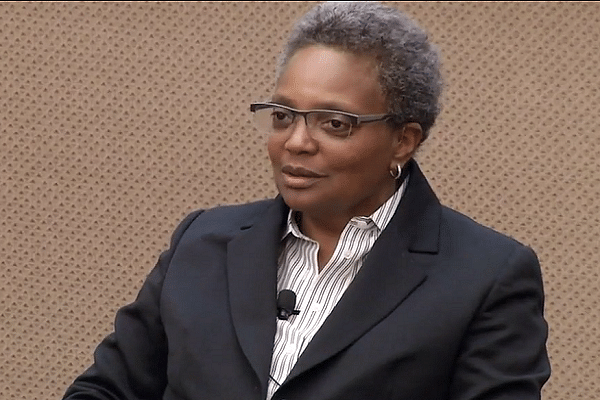Insta
'It Perpetuates Stereotypes Which Drive Hinduphobia': Hindus Oppose Chicago City Council's Anti-CAA Resolution

Chicago Mayor Lori Lightfoot (MacLean centre/Wikimedia Commons)
The Coalition of Hindus of North America (CoHNA) in a letter to Chicago Mayor Lori Lightfoot and Chicago City Council Members has urged them to stand for persecuted refugees in the Indian subcontinent, by rejecting its anti-CAA resolution,
CoHNA terms the resolution as "very divisive, full of falsehoods that reveals an extremely poor to non-existent understanding of the issues being referred to".
The release adds that this resolution propagates disinformation about Indians in general and Hindus in particular, vilifying them and perpetuates the stereotypes that drive Hinduphobia.
“It is both common sense and instinctive human nature to prioritise and help those in the direst of needs,” remarked Nikunj Trivedi, President of CoHNA.
“By passing Resolution R2020-583, the city is essentially saying that severely persecuted minorities and refugees deserve no extra kindness, help or accommodation. Even more perversely, the city is condemning those who seek to help the most destitute as engaging in ‘discrimination'", he adds.
The release states that the Chicago City Council by venturing into international issues beyond its understanding and taking cues from organisations that have a history of peddling Hinduphobia and supporting the denigration of Hindu religious festivals and symbols, has created a hostile atmosphere for Hindu Americans in the city of Chicago and beyond.
"It is particularly surprising to see the city devote time and resources on this amid an unprecedented pandemic that has killed so many and while ignoring long term problems around unemployment, homelessness, racism, the opioid crisis and other pressing local issues", the release adds.
Introducing ElectionsHQ + 50 Ground Reports Project
The 2024 elections might seem easy to guess, but there are some important questions that shouldn't be missed.
Do freebies still sway voters? Do people prioritise infrastructure when voting? How will Punjab vote?
The answers to these questions provide great insights into where we, as a country, are headed in the years to come.
Swarajya is starting a project with an aim to do 50 solid ground stories and a smart commentary service on WhatsApp, a one-of-a-kind. We'd love your support during this election season.
Click below to contribute.
Latest